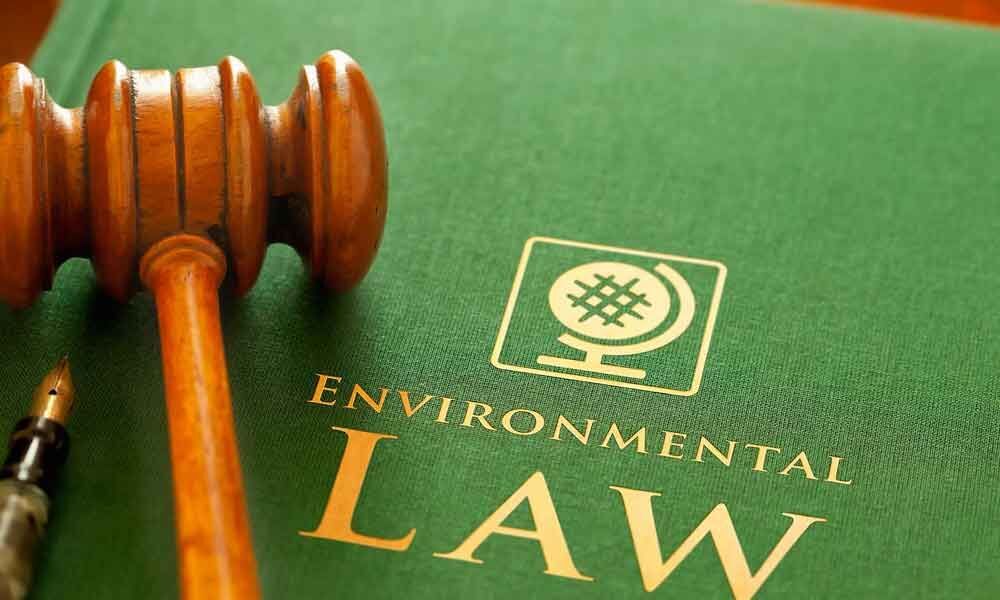Live
- SC orders strict action against illegal construction
- Man kills sibling over property dispute
- Karnataka gets third govt cardiology hospital
- Minister Ramalinga’s efforts help safeguard over 10,000 acres of temple Land
- Laxminarayan College gets NAAC B+ accreditation
- Champions Trophy: India vs Pakistan Match Likely to Be Held on This Date
- Tigress Zeenat spotted in Purulia
- Collectors asked for proper assessment of crop loss
- Teachers are pillars of social development: Sudheer Reddy
- Sandhya Theater Stampede Incident: Rahul Ramakrishna Retracts Comments on Issue
Just In
Jindal varsity-WWF offer course on environmental law


Law graduates and professionals can now opt for a year-long LLM programme in Environmental Law, Energy and Climate Change, launched recently by Jindal Global Law School and WWF India keeping in view the necessity for such a course.
New Delhi: Law graduates and professionals can now opt for a year-long LLM programme in Environmental Law, Energy and Climate Change, launched recently by Jindal Global Law School and WWF India keeping in view the necessity for such a course.
"The theme of environmental law and climate change is probably the most important issue that universities and law schools should be concerned about.
"Environment is one such thing, but even more importantly, legal institutions and laws have a very significant role in speaking truth to power. Public policy and law have that goal and with that objective, we are launching the programme," Jindal Global University Founding Vice Chancellor C. Raj Kumar said in a statement.
The one-year LLM course consists of core and elective courses covering national and international environmental laws, energy laws and policies, climate change governance and adaptation, renewable energy development in India and field trips for promoting experiential learning.
The objective is to study the relationship between environment and climate change as well as the role of law, judiciary, resolution mechanisms, alternate energy solutions and how people are dealing with climate change, environmental laws and the implementation of available solutions.
WWF India CEO Ravi Singh also stressed the role of law in creating a healthy, clean environment and preventing the abrupt changes in climate.
The course's launch event was attended by Supreme Court's Justice D.Y. Chandrachud and Justice Deepak Gupta, and Supreme Court of Hawaii judges, Justice Michael D. Wilson and Justice Sabrina McKenna.
In his address, Justice Chandrachud termed climate change as an existential threat and the most important issue facing humanity today.
"The rule of law in environmental governance is seen as an aid in recognising of environmental injustices faced by vulnerable groups such as indigenous tribes, women and livelihood reliant communities."
Justice Gupta stressed on administration and public coming forward and acting as well.

© 2024 Hyderabad Media House Limited/The Hans India. All rights reserved. Powered by hocalwire.com






